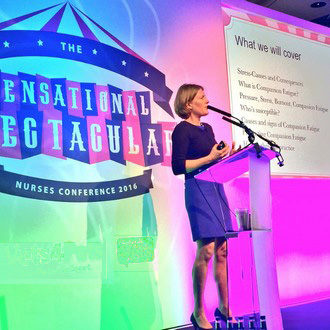This week marks Volunteers’ Week in the UK, an annual event celebrating the impact volunteers make in our communities every day.
Each of us has the power to do something extraordinary, sharing our skills, time and experience for the benefit of others. And whilst we can certainly make a real difference to others, we also benefit enormously ourselves from the volunteering experience – we feel a positive difference too.
Research undertaken on behalf of The National Council for Voluntary Organisations (NCVO) quantifies why and to what extent people volunteer in Britain:
- 11.9 million people volunteered at least once a month
- Regular volunteers give, on average, 11.6 hours of their time per month
- The equivalent market value of volunteering was estimated to be £23.9bn in 2016
- 65% of volunteers are female
- 63% work full time
- The most popular reasons were to improve things/help people (61%) and that the cause was considered important (39%)
- Less frequently mentioned reasons included to get on in my career (7%), feeling there was no one else to do it (8%) and to get a recognised qualification (3%)
As veterinary professionals, we are a naturally caring and empathic bunch; if ever there were a group of people predisposed towards doing the right thing for others, it’s us. However, giving so much of your own time and energy can sometimes be draining and feel unrewarding, so it’s important to step back and remember what’s in it for us too.
Some of the many benefits that volunteering brings include:
Gaining and developing skills
Perhaps you’d like to take on team or project management responsibilities at work, but you don’t have the requisite qualifications or experience? Volunteering your time as a governor or on the PTA of your children’s school will help you develop and practise relevant skills, as well as giving you the opportunity to learn from watching others. Helping out in a charity shop will give you experience of working within a team of different personalities and provide insight into the need for flexible communication and management styles.
Testing out new careers or roles
Before taking the leap into a new field, volunteering at a local animal shelter might help you assign value and order your own priorities – perhaps you’ve always wanted to work in the charitable sector, but could you thrive professionally amongst the endless financial and sociodemographic challenges facing your clients? Try it out first and see.
Teambuilding
Many businesses, large and small, run employee volunteer schemes supporting local charities with time, money and expertise from their staff. Friends of mine working for MARS spend one paid day each year providing practical help to The Trussell Trust, delivering and handing out stocks of confectionery, pet food, rice and cooking sauces donated by the company to the charity’s food banks. They work in teams made up of colleagues from other departments, building links across the organisation and fostering a real sense of togetherness and purpose. I also know of veterinary practices where the clinical teams donate one weekend a year to undertaking neutering for rehoming charities – vets and nurses feel a real sense of pride in using their skills for the greater good and build strong bonds with their colleagues outside the normal work environment.
Gaining more time
Paradoxically, research published in the Harvard Business Review shows that those who volunteer their time feel like they have more of it. This tallies with the NCVO data above, which states that 63% of volunteers work full time. We can all feel that we don’t have enough time, but (as we’ve discussed before) this usually comes down to just not being very good at organising it! Volunteering a regular chunk of time forces you to make better use of the rest of your week in order to clear the space required. Quite simply, you become more productive and can do more in less time.
Improving your health
Research undertaken for the US government finds a clear link between volunteering and health: “those who volunteer have lower mortality rates, greater functional ability, and lower rates of depression later in life than those who do not volunteer”. (Source www.nationalservice.gov)
Feel the love!
Studies by the London School of Economics have examined the relationship between volunteering and happiness, concluding that the more people volunteered, the happier they were. Volunteering builds empathy, strengthens social bonds and makes you feel good about yourself.
Whilst volunteering is beneficial in so many ways, it doesn’t have to be onerous or time-consuming. Often it can fit seamlessly into your existing schedule and provide opportunities to do things you love – you might give an hour a month walking dogs for a local rescue charity or bake a birthday cake for one of your elderly clients who lives alone.
You choose, and you make the difference.
“From what we get, we can make a living; what we give, however, makes a life.”
Arthur Ashe.








